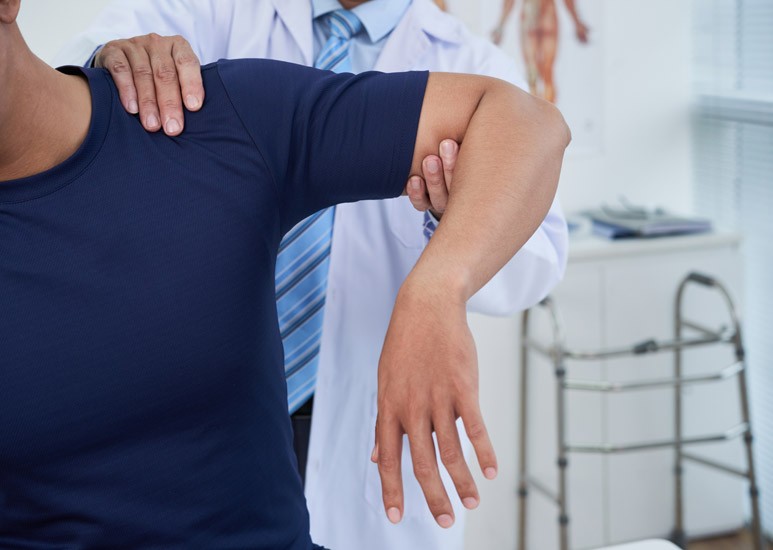As football season is upon us, many watch from the sidelines while others play at high speeds and with full body contact.
Contact sports put a large amount of stress on the body. Particularly in sports like football, throwing and tackling can take a toll on a player’s shoulders, resulting in injury. These injuries often include shoulder contusions, separations or even dislocations.
“Prevention of shoulder injuries starts with preseason conditioning, working on strong scapular stabilization exercises, rotator cuff strengthening exercises, and core function,” says Michael Shannon Todd, DO, orthopedic sports medicine specialist with Community Physician Network in Anderson. “This may reduce the risk for shoulder dislocations, however, there is no real prevention for a shoulder separation.”
Signs of Shoulder Injury
While on the field or court this season, keep an eye out for the following situations or signs that injury has occurred. Work with your athletic trainer or a Community Health Network sports medicine specialist if you have experienced:
- Quick onset of pain to the outside portion of the collar bone
- Should out of socket with acute pain
- Acute shoulder pain when tackled and landing on one's side
- Pain when falling on an outstretched arm
- Swelling and pain throughout the shoulder
Proactively Prevent Shoulder Injuries
Stretching always helps. Focus on major muscle groups and hold your stretch for about 30 seconds each while breathing normally. You can take it a step further by talking to an athletic trainer or primary care physician on how best to reduce the risk of injury.
Add Ice and Compression Wraps
That frozen bag of peas comes in handy for minor shoulder injuries. See your primary care doctor to better understand if a shoulder compression wrap and ice will do the trick long term, or if the severity of pain requires an orthopedic specialist.
“All athletes need to work closely with their strength team, athletic trainers and physicians in order to give themselves the best chance for a successful, and hopefully, injury free season,” Dr. Todd adds.
We will be with you every step of the way if you find yourself experiencing shoulder pain before, during, or after the season. Consult with a Community physician today.
